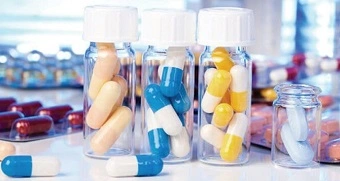Biosimilars at the Forefront: Pioneering New Avenues in Medical Treatment
27 Mar 2024 • by Natalie Aster

Biosimilars, the close equivalents of biologic drugs with expired patents, are reshaping the landscape of the pharmaceutical industry. Their rise in popularity and demand is a multifaceted phenomenon, driven by economic, regulatory, and clinical factors. As these products offer comparable therapeutic benefits to their reference biologics but at a reduced cost, they are becoming increasingly vital in healthcare systems worldwide.
Increased Acceptance in the Medical Community
Backed by the increasing clinical evidence, healthcare professionals are becoming more confident in prescribing biosimilars. The proven similarity to their reference biologics in terms of safety and efficacy has boosted their acceptance among physicians, pharmacists, and patients. This growing confidence, supported by positive clinical outcomes and educational initiatives, acts as a critical factor driving the demand for biosimilars.
Patent Expirations of Major Biologics
The expiration of patents for blockbuster biologics has opened the door for biosimilars. As these patents expire, biosimilars manufacturers gain the legal and commercial freedom to produce and sell their versions of these high-value drugs. This shift stimulates market competition and also extends access to essential medications, contributing to the overall growth of the biosimilars market.
Cost Reduction and Healthcare Savings
One of the key drivers of biosimilars demand is their potential to significantly reduce healthcare costs. Biologics are often expensive due to their complex manufacturing processes, and as patents expire, biosimilars enter the market at lower prices, offering substantial savings for healthcare systems and patients. This cost-effectiveness is crucial in times of budget constraints and increasing healthcare expenditures, it allows to reallocate resources to other healthcare areas.
Supportive Regulatory Environment
The uptake and penetration of biosimilars are considerably influenced by regulatory policies. In some regions, for instance, the European Union and the United States, regulatory authorities have established clear approval pathways for biosimilars, ensuring their safety, efficacy, and quality. These established frameworks reassure healthcare providers and patients about the reliability of biosimilars, facilitating their acceptance and integration into clinical practice.
Expansion of Indications and Therapeutic Areas
Initially focused on a few high-impact areas, such as oncology and autoimmune diseases, today the scope of biosimilars is expanding to cover a broader range of therapeutic areas. This expansion is facilitated by the development of biosimilars for a wider array of molecules, thereby increasing their applicability and potential market reach.
Global Market Dynamics
The environment of the global pharmaceutical industry also plays a vital role in the mounting demand for biosimilars. Emerging markets are showing a keen interest in biosimilars due to their affordability and the growing need for cost-effective treatment solutions. Meanwhile, in developed markets, healthcare systems are promoting the adoption of biosimilars as a strategy to control spending on biologic therapies.
Strategic Alliances and Partnerships
Pharmaceutical companies are increasingly engaging in alliances and partnerships to capitalize on the opportunities presented by the biosimilars market. These collaborations often aim to combine expertise in biologic drug development with capabilities in manufacturing and distribution, accelerating the entry of biosimilars into the market and enhancing their competitive positioning.
To Sum Up:
The surging demand for biosimilars is underpinned by a confluence of economic, regulatory, and clinical factors. As they offer a cost-effective alternative to expensive biologics, their role in healthcare is becoming increasingly prominent. With supportive regulatory frameworks, growing acceptance in the medical community, and expansion into new therapeutic areas, biosimilars are set to continue their trajectory of growth. The evolving dynamics of the global pharmaceutical market, along with strategic industry collaborations, are further shaping the biosimilar landscape, heralding a new era of accessible, affordable, and effective treatment options for patients worldwide.
Product Details:
Biosimilars Market based on by Material Type (Silicon, Germanium, Transition Metal Oxides, Gold), Industry (Consumer Electronics, Automotive, Aviation, Energy, Medical Devices), Regional Outlook– Global Forecast up to 2032
Published: March 2024
Pages: 118
Market Publishers boasts a vast collection of insightful research studies covering various sectors of the healthcare market, find it in this Market Publishers' catalogue.
CONTACTS
The Market Publishers, Ltd.
Natalie Aster
Tel: +357 96 030922
[email protected]
MarketPublishers.com
Analytics & News
